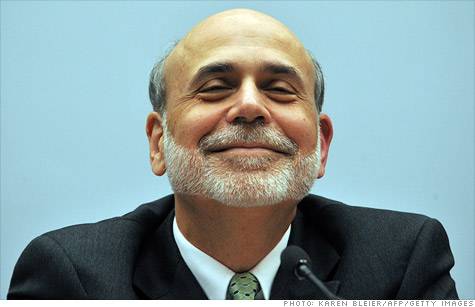Gold Member
- Apr 26, 2011
- 2,979
- 500
- 130
Anyone who believes the answer is President Obama needs some perspective.
The Dodd-Frank Act mandated that the United States Government Accountability Office audit the actions of the Federal Reserve as it quietly invoked emergency authority under the Federal Reserve Act of 1913.
To truly comprehend what that audit found keep in mind that the debt debate was over $14 trillion. America's GDP as of last year was $14 trillion.
The GAO (http://www.gao.gov/new.items/d11696.pdf) found from 2007-2011 the Federal Reserve loaned a staggering $16 trillion, of which a little under 20% went to banks in the Switzerland, France, Belgium , Germany, & UK. Right around $1.6 trillion went to purchase US Treasury Bills—of which the interest paid by the US government is returned from the Federal Reserve minus administrative costs and returned to the US Treasury, and—now get this—a portion was used to fund many portions of the Dodd-Frank Act (http://www.alston.com/files/docs/Dodd-Frank_studies_and_reports.pdf).
When Congress itself attempted to find out where TARP funds went, FED Chairman Ben Bernanke refused to disclose the information. It finally took a Supreme Court ruling to reveal that information (Supreme Court Orders Fed Disclosure of Bank Borrowing Info - Day Trender - News, Business, Real Estate News, Financial, Tech, World - News and trends).
The audit found that “while the Federal Reserve System took steps to promote consistent treatment of eligible program participants, it did not always document processes and decisions related to restricting access for some institutions” and that they largely delegated contracts on a no-bid basis (http://www.gao.gov/new.items/d11696.pdf). In other words, the FED indiscriminately loaned out the GDP of the US without any justification.
The FED is the invisible fourth branch of government, vested with unimaginable influence with virtually no checks and balances.
Ben Bernanke agreed to "strongly consider" the recommendations made by the GAO
The Dodd-Frank Act mandated that the United States Government Accountability Office audit the actions of the Federal Reserve as it quietly invoked emergency authority under the Federal Reserve Act of 1913.
To truly comprehend what that audit found keep in mind that the debt debate was over $14 trillion. America's GDP as of last year was $14 trillion.
The GAO (http://www.gao.gov/new.items/d11696.pdf) found from 2007-2011 the Federal Reserve loaned a staggering $16 trillion, of which a little under 20% went to banks in the Switzerland, France, Belgium , Germany, & UK. Right around $1.6 trillion went to purchase US Treasury Bills—of which the interest paid by the US government is returned from the Federal Reserve minus administrative costs and returned to the US Treasury, and—now get this—a portion was used to fund many portions of the Dodd-Frank Act (http://www.alston.com/files/docs/Dodd-Frank_studies_and_reports.pdf).
When Congress itself attempted to find out where TARP funds went, FED Chairman Ben Bernanke refused to disclose the information. It finally took a Supreme Court ruling to reveal that information (Supreme Court Orders Fed Disclosure of Bank Borrowing Info - Day Trender - News, Business, Real Estate News, Financial, Tech, World - News and trends).
The audit found that “while the Federal Reserve System took steps to promote consistent treatment of eligible program participants, it did not always document processes and decisions related to restricting access for some institutions” and that they largely delegated contracts on a no-bid basis (http://www.gao.gov/new.items/d11696.pdf). In other words, the FED indiscriminately loaned out the GDP of the US without any justification.
The FED is the invisible fourth branch of government, vested with unimaginable influence with virtually no checks and balances.
Ben Bernanke agreed to "strongly consider" the recommendations made by the GAO

Last edited:




